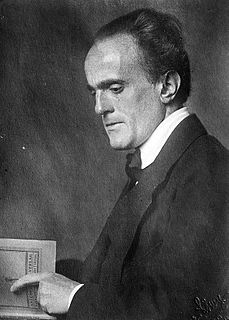Related Research Articles

Gregor Johann Mendel was a scientist, Augustinian friar and abbot of St. Thomas' Abbey in Brno, Margraviate of Moravia. Mendel was born in a German-speaking family in the Silesian part of the Austrian Empire and gained posthumous recognition as the founder of the modern science of genetics. Though farmers had known for millennia that crossbreeding of animals and plants could favor certain desirable traits, Mendel's pea plant experiments conducted between 1856 and 1863 established many of the rules of heredity, now referred to as the laws of Mendelian inheritance.

The Ig Nobel Prize is a satiric prize awarded annually since 1991 to celebrate ten unusual or trivial achievements in scientific research, its stated aim being to "honor achievements that first make people laugh, and then make them think." The name of the award is a pun on the Nobel Prize, which it parodies, and the word ignoble.

Mendelian inheritance is a type of biological inheritance that follows the principles originally proposed by Gregor Mendel in 1865 and 1866, re-discovered in 1900 and popularised by William Bateson. These principles were initially controversial. When Mendel's theories were integrated with the Boveri–Sutton chromosome theory of inheritance by Thomas Hunt Morgan in 1915, they became the core of classical genetics. Ronald Fisher combined these ideas with the theory of natural selection in his 1930 book The Genetical Theory of Natural Selection, putting evolution onto a mathematical footing and forming the basis for population genetics within the modern evolutionary synthesis.

Social Darwinism is any of various theories of society which emerged in Western Europe and North America in the 1870s, claiming to apply biological concepts of natural selection and survival of the fittest to sociology, economics, and politics. Social Darwinists argue that the strong should see their wealth and power increase while the weak should see their wealth and power decrease. Different social Darwinist groups have differing views about which groups of people are considered to be the strong and which groups of people are considered to be the weak, and they also hold different opinions about the precise mechanisms that should be used to reward strength and punish weakness. Many such views stress competition between individuals in laissez-faire capitalism, while others were used in support of authoritarianism, eugenics, racism, imperialism, fascism, Nazism, and struggle between national or racial groups.

The Modern Synthesis was the early 20th-century synthesis reconciling Charles Darwin's theory of evolution and Gregor Mendel's ideas on heredity in a joint mathematical framework. Julian Huxley coined the term in his 1942 book, Evolution: The Modern Synthesis.

Max Ludwig Henning Delbrück, a German–American biophysicist, helped launch the molecular biology research program in the late 1930s. He stimulated physical scientists' interest into biology, especially as to basic research to physically explain genes, mysterious at the time. Formed in 1945 and led by Delbrück along with Salvador Luria and Alfred Hershey, the Phage Group made substantial headway unraveling important aspects of genetics. The three shared the 1969 Nobel Prize in Physiology or Medicine "for their discoveries concerning the replication mechanism and the genetic structure of viruses". He was the first physicist to predict what is now called Delbrück scattering.

Carl Wilhelm von Nägeli was a Swiss botanist. He studied cell division and pollination but became known as the man who discouraged Gregor Mendel from further work on genetics. He rejected natural selection as a mechanism of evolution, favouring orthogenesis driven by a supposed "inner perfecting principle".

William Bateson was an English biologist who was the first person to use the term genetics to describe the study of heredity, and the chief populariser of the ideas of Gregor Mendel following their rediscovery in 1900 by Hugo de Vries and Carl Correns. His 1894 book Materials for the Study of Variation was one of the earliest formulations of the new approach to genetics.

Hugo Marie de Vries was a Dutch botanist and one of the first geneticists. He is known chiefly for suggesting the concept of genes, rediscovering the laws of heredity in the 1890s while apparently unaware of Gregor Mendel's work, for introducing the term "mutation", and for developing a mutation theory of evolution.

Reginald Crundall Punnett FRS was a British geneticist who co-founded, with William Bateson, the Journal of Genetics in 1910. Punnett is probably best remembered today as the creator of the Punnett square, a tool still used by biologists to predict the probability of possible genotypes of offspring. His Mendelism (1905) is sometimes said to have been the first textbook on genetics; it was probably the first popular science book to introduce genetics to the public.

Eric Francis Wieschaus is an American evolutionary developmental biologist and 1995 Nobel Prize-winner.

Paul Kammerer was an Austrian biologist who studied and advocated Lamarckism, the theory that organisms may pass to their offspring characteristics acquired in their lifetime.
Richard Weikart is a professor of history at California State University, Stanislaus, advocate of intelligent design and senior fellow for the Center for Science and Culture of the Discovery Institute. In 1997 he joined the editorial board of the Access Research Network's Origins & Design Journal. Weikart's work focuses on claims about the impact of evolution on social thought, ethics and morality. His work and conclusions are controversial.
H. Allen Orr is the Shirley Cox Kearns Professor of Biology at the University of Rochester.

Franz Joseph Andreas Nicolaus Unger was an Austrian botanist, paleontologist and plant physiologist.

From Darwin to Hitler: evolutionary ethics, eugenics, and racism in Germany is a 2004 book by Richard Weikart, a historian at California State University, Stanislaus, and a senior fellow for the Center for Science and Culture of the creationist Discovery Institute. The work is controversial. Graeme Gooday, John M. Lynch, Kenneth G. Wilson, and Constance K. Barsky wrote that "numerous reviews have accused Weikart of selectively viewing his rich primary material, ignoring political, social, psychological, and economic factors" that helped shape Nazi eugenics and racism.
Benjamin Wiker is a Roman Catholic ethicist.

Florence Margaret Durham was a British geneticist at Cambridge in the early 1900s and an advocate of the theory of Mendelian inheritance, at a time when it was still controversial. She was part of an informal school of genetics at Cambridge led by her brother-in-law William Bateson. Her work on the heredity of coat colours in mice and canaries helped to support and extend Mendel's law of heredity. It is also one of the first examples of epistasis.

Richard Marshall Eakin, was an American zoologist and professor at the University of California, Berkeley, widely known for portraying prominent historical scientists during some of his lectures; dressing in costume and speaking in character to entertain and inform his students. A 1953 Guggenheim fellow, he wrote several books and more than 200 scientific papers. His research focused on eyes and vision in animals, especially the parietal eye or "third eye" of vertebrates, as well as animal embryology. He served as chairman of the UC Berkeley Department of Zoology for over 10 years, was elected president of the Western Society of Naturalists and American Society of Zoologists, and was a fellow of the California Academy of Sciences.
The Mendel Lectures is a series of lectures given by the world's top scientists in genetics, molecular biology, biochemistry, microbiology, medicine and related areas which has been held in the refectory of the Augustian Abbey of St. Thomas in Brno, Czech Republic since May 2003. The lectures were established to celebrate the 50th anniversary of the discovery of the structure of deoxyribonucleic acid (DNA) by James Watson (1928) and Francis Crick (1916-2004). The Mendel Lectures are named in honour of Gregor Johann Mendel (1822-1884), the founder of genetics, who lived and worked in the Augustinian Abbey in Brno 1843-1884. Based on his experiments conducted in the abbey between 1856 and 1863, Mendel established the basic rules of heredity, now referred to as the laws of Mendelian inheritance. The Mendel Lectures are organized by the Masaryk University, the Mendel Museum, and the St. Anne's University Hospital Brno. The eighteenth season of the Mendel Lectures is running at present. More than 100 top scientists, including many Nobel Prize winners, have visited Brno to give a Mendel Lecture, for example Tim Hunt, Jack W. Szostak, John Gurdon, Elizabeth Blackburn, Paul Nurse, Venkatraman Ramakrishnan, Günter Blobel, Kurt Wüthrich, Jules A. Hoffmann, Aaron Ciechanover, Ada Yonath, Paul Modrich, Eric F. Wieschaus, Fraser Stoddart and others.
References
- ↑ "Sander Gliboff CV". Indiana University. 2008. Retrieved 2008-05-17.
- ↑ "The Ivan Slade Prize, 1999". The British Society for the History of Science. 2008. Archived from the original on 2008-04-08. Retrieved 2008-05-17.